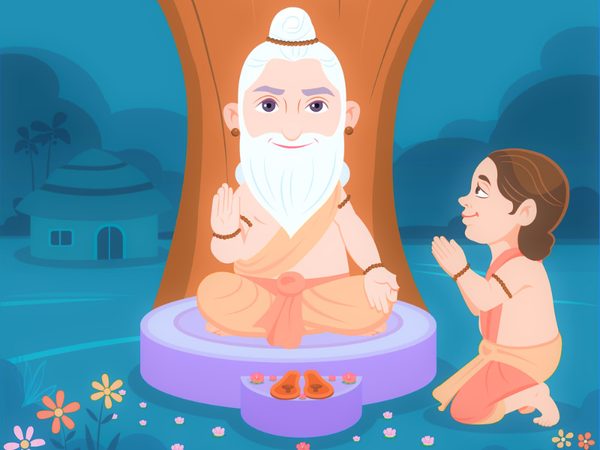How to Support a Loved One in a Narcissistic Cult

Your friend, family member, or loved one may have unwittingly fallen under the strong influence or control of a cult organisation usually led by a charismatic or narcissistic leader. In extreme cases, this friend or family may even cut you and other loved ones off, move away, or become rather unreachable. It is like losing someone you love.
In this article, let’s name this organisation who has exerted a strong influence as the Cult, and your loved one as the Member.
A Cult tends to have qualities such as:
- Positions as a higher authority with better knowledge.
- Communicates good and grand intentions to save or help others.
- Controversial or presents controversial views confidently without remorse or guilt.
- Needs to be right and presents arguments to prove that he/she is the right one and others have wronged the Cult.
- Black and white thinking – judges others easily and strongly based on surface traits. For example, “those that do not take our courses or follow our teachings are unconscious/unawakened/sinned”, or “if you say X, it means you are Y”.
- Defensive and shifts blame to the Member or external parties when challenged, judged, or criticised. It is not the Cult nor Cult leader’s fault.
- Feels like a victim of the unfair treatment or judgement of others and uses this to justify his or her actions.
- Needs to exert power/control over others, such as needing a large amount of time, energy and commitment, or controlling life decisions of Members.
- Lack of empathy, insensitive and dismisses the needs and requests of the Member(s). This includes basic needs such as to rest, to spend quality undisturbed time with friends and family, to enjoy personal interests, to work and to save finances for the future. The Member is expected to understand the Cult’s needs and adjust their own accordingly.
- Employs other manipulative, blackmailing, gaslighting, blaming and defensive techniques to get his/her way and to control the outcome, behaviour and decisions of the Member.
Signs that your loved one has become a Member of a Cult:
- Personality change: The nice, sweet and kind person you once knew has changed after joining the Cult. He/she may even adopt the personality, thought patterns and behavioural traits of the Cult and Cult’s leaders.
- Distance from loved ones: spends significantly less time than usual, shares less of his/her intimate thoughts or even physically move away and become uncontactable.
- Distance from or change in personal interests and hobbies: loss of interest in previous interests that the Cult now does not approve and/or pursues new interests and hobbies promoted by the Cult.
- Feeling obligated: Feels and acts on the obligation, guilt or shame to follow the ways or serve the Cult’s expectations, even at the expense of his or her own health, time, priorities and life goals.
- Feeling a strong sense of loyalty and/or undying or willingly self-sacrificial love towards the Cult, Cult Leaders and other Members.
Article Objective
This article seeks to share ways to support this family or friend who is under a strong influence or even control by a narcissistic cult with strong power/control dynamics, written from experience.
As close family and friends, you will naturally become very concerned, and try your best to ‘talk sense’ or ‘get the person out’ of the situation. However, you may find that all this goodwill and time spent fall on deaf ears. There may even be heated arguments or cold wars that strengthen the resolve of the Member to persist, distance further from you and get deeper into the Cult. Even if there is a common understanding reached, the Member may still feel bonded and connected to the Cult, and return to being with or serving the Cult’s directives.
1) Understanding the Psychology Behind
Why does this happen? A common argument used by the Cult is often along the lines of, “your family and friends do not understand you, only I (or we) do. If they try to stop you, they do not understand your goals and are an obstacle in your path”. Therefore, even with well-meaning intentions, when kind friends / family insist and use forceful techniques, it often backfires. Instead, the kind words of truth tend to be ‘misinterpreted’ as obstacles, objections and a lack of support.
It is important to understand what the Member truly craves for and needs, and believe they can get from the Cult. Typically this involves a mix of deep unconditional / undying love, kindness, guidance, direction, support and acceptance, sense of belonging and freedom to be yourself.
While the Cult often promises this, and proves it by providing large amounts of love and acceptance in the beginning to new members (also known as “love bombing”), this is not sustainable. After a while, there is a return demanded. The ‘honeymoon’ phase is typically followed by high expectations, requirements to serve or provide in return, criticism, judgement, shaming, guilt-tripping and unpredictable moods that are nicely packaged as goodwill or a necessary move for the Member’s own good.
2) The Member’s Experience
It is likely that your loved one is experiencing gaslighting, inconsistent treatment, high expectations and demands or even emotionally and physically abusive or toxic behaviour. After repeated periods of withdrawal of the desired “love” and “acceptance”, the titbits of “love” and “acceptance” which are given as a reward for good unquestioning follower behaviour will likely be received with great gratitude. It is like the gratitude of receiving water after suffering in a desert with burning hot days and chilly nights.
3) The Gap and Opportunity
While these dynamics are unhealthy and concerning to a third party, the Member typically denies or covers it with justifications provided by the Cult. It is difficult to watch your loved one go through it and yet deny it.
However, this is a great opportunity for you to demonstrate to your loved one how genuine love, kindness and acceptance feel. The kind of love that is given from the heart, which will not be withdrawn if it is not returned or repaid under terms and conditions defined by the giver. If you can provide a truly loving, kind and accepting environment to your loved one, it makes a big difference with the treatment they are receiving from the Cult. This draws them closer to you and away from the Cult – mission achieved.
4) When to Intervene
Deciding when to intervene depends on the stage of awareness of the Member. The 5 stages are generally:
-
- Honeymoon: Feels connected and aligned to the Cult. It is an oasis of safety, community, hope and dreams.
- Criticism and Blame: Flaws are pointed out as reasons for staying and improving / curing / healing / redeeming yourself with the Cult. The Cult’s solutions are the only viable solution to help the Members.
- Deeper Commitment: Committed and aligned to the cause of the Cult, and in a bid to improve themselves, the Member becomes more committed to learning with the Cult, participating in activities and etc.
- Questioning: The Member goes through cycles of 2 and 3. Between cycles, the Member may begin to question why. This is the point to intervene, share facts and stories and to encourage them to think for themselves
- Self-Initiated Decision: The Member takes a decision to stay or leave the Cult. This decision must come from the free will and informed choice of the Member to be sustainable and not return to the Cult.
Here are 7 tips to support a family or friend who has become a Member:
- Be understanding and empathetic: Take time to listen. Simply try to understand from their perspective, and accept it as is.
- Do not judge and reject: When your loved one shares his or her perspective and stories, it may sound absurd. Do not judge and reject them. Instead, be curious and ask more questions.
Important note: Your loved one is in deep need of acceptance at this point, judging can be detrimental. Judgement comes across more strongly than usual as rejection, which may drive them further away from you and towards the Cult. - Be kind and loving: When interacting, treat your loved one with kindness and love. Share warm food and welcoming shelter. Welcome your loved one into your home and life with genuine love. Life with the Cult is often harsh, judgemental and fearful. Giving them the opposite could help them to feel safe and relieved, and even open up a self reflection into why they feel so relaxed, safe and happy with you and to start to observe how differently they feel with the Cult.
- Be respectful: The Cult is often not able to consistently provide respect and consideration. The needs and opinions of the Members are often downplayed or dismissed. Giving respect allows them to experience the difference between being respected and disrespected. What you can do as a loving family or friend is to listen and respect your loved one’s opinions (even if it sounds absurd under the Cult’s influence). We want your loved one to feel valued, open and closer with you.
- Hold clear boundaries: While being kind and loving helps, the Member might take it for granted and impose greater and greater demands. It is important to be clear and take actions on what you will or will not do. This demonstrates fair and clear boundaries, which could be a stark difference from what the Member is experiencing.
- Be of Integrity (Keep to Your Word): Your loved one may have been experiencing gaslighting or situations where promises and words change with the circumstances, expectations and feelings of the Cult and Cult Leader. Do the contrary and be of integrity. Take actions for your words and create supportive and trustworthy interactions that help the Member to feel safe, taken care of and thus have a higher chance of coming home.
- Share your views objectively and without blaming, shaming or judging:
– Being nice does not mean you suppress your views and encourage your loved one to continue being under the control of the Cult.
– When and how you share matters. Share your views objectively with care and love. Empower your loved one to think critically for himself or herself, not simply to please you. This would increase the chances that your loved one can hear and accept them.
– Do not blame, shame or judge them. For example, saying “if you are smarter, you wouldn’t even be there. Stop being an idiot, leave now and live your own life! I’m sure you can do better than this” comes across as shaming and judgemental, even if it is said with good intentions. - Be Patient: There are reasons why the Member persists in the Cult, such as a deeper sense of feeling unloved, unworthy, needing to prove one’s worth, get validation or needing love. The journey of finding the self and becoming strong enough to leave could be long and repetitive with back-and-forths and no immediate results. Be patient and continue to support them. Give safe and stable love to your loved one, while being firm on your views and accepting of the differences.
It is easier said than done. It takes effort, understanding and persistence to be there for someone you love, and watching the control or even mistreatment is difficult.
Members may come from a background where judgements and other hurtful relationship dynamics are commonplace. The deep lack of love in the Members’ hearts makes them susceptible to the Cult.
Ideally, self-reflection and self-inquiry is essential from both the Member and the family / friends who want to help.
If there are any further tips or views on this matter, feel free to share them in the comments or send an email to dara.kei@darakei.com.




